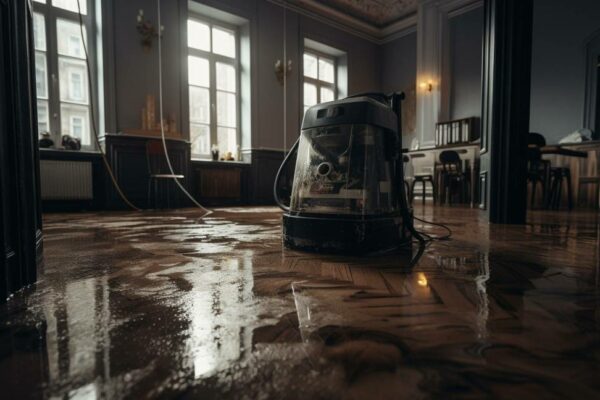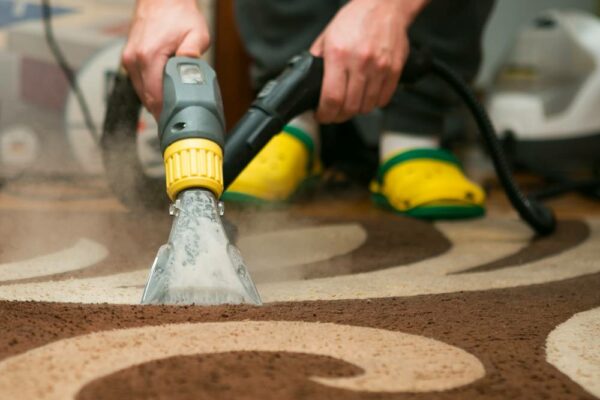How to Deodorise Your House Naturally
July 19, 2023
A fresh-smelling home is not only inviting but also essential for our well-being. Instead of relying on commercial air fresheners loaded with synthetic fragrances and chemicals, you can try natural deodorising methods that are both effective and safe.
In this blog post, we will explore various ways to naturally deodorise your house, keeping it smelling pleasant and maintaining a healthier living environment for you and your family.
Identify the Source of Odors
Before diving into deodorising solutions, it’s crucial to identify the sources of unpleasant odours in your home. Common culprits include garbage cans, kitchen waste, pet areas, mould, and stale air. By locating the root cause, you can better target your deodorising efforts.
Natural Deodorising Methods for Different Areas
Kitchen
The kitchen is a hub of activity and can easily become a source of unwanted smells. Here are some natural deodorising methods to keep your kitchen fresh:
- Using citrus fruits and peels: Place citrus slices or peels in a bowl on the countertop to release their refreshing aroma.
- DIY natural kitchen sprays: Create your own spray using water, vinegar, and essential oils like lemon or eucalyptus.
- Baking soda and vinegar solutions: Use these natural powerhouses to clean countertops, sinks, and eliminate stubborn odours.
Living Room
The living room is where we relax and entertain guests, so it’s essential to maintain a pleasant atmosphere:
- Homemade potpourri: Combine dried flowers, herbs, and spices for a lovely natural fragrance.
- Odour-absorbing houseplants: Invest in plants like lavender, jasmine, or aloe vera to purify the air and neutralise odours.
- Fresh air circulation: Open windows and let the breeze sweep away stale smells.
Bathroom
Banish unpleasant bathroom odours with these natural solutions:
- All-natural air fresheners: Make your own spray using water, witch hazel, and essential oils like peppermint or tea tree.
- Essential oils for deodorising: Add a few drops of essential oil to the inside of the toilet paper roll for a subtle scent.
- Keeping moisture in check: Use exhaust fans or open windows after showers to prevent mould and musty smells.
Bedroom
Ensure a restful sleep in a fresh-smelling bedroom:
- Natural linen sprays: Mist your bedsheets with a blend of water and lavender or chamomile essential oil.
- Regular bedding maintenance: Wash bed linens frequently to keep them smelling clean and inviting.
- Closet deodorising tips: Place cedar chips or dried lavender sachets in your closet to absorb odours.
Pet Areas
Pets are delightful companions, but their areas can sometimes harbour strong odours:
- Baking soda for pet odours: Sprinkle baking soda on carpets and furniture, then vacuum it up after a few minutes.
- Vinegar solutions for cleaning: Use a mixture of water and vinegar to wipe down surfaces in pet areas.
- Pet-friendly plants: Introduce pet-safe plants like spider plants or Boston ferns to help purify the air.
General Deodorising Techniques
In addition to area-specific solutions, some general deodorising techniques can freshen up your entire home:
- Opening windows for ventilation: Letting fresh air circulate helps eliminate stagnant odours.
- Using charcoal to absorb odours: Place activated charcoal in bowls around your home to neutralise smells.
- Cleaning with natural ingredients: Opt for natural cleaning products that do not leave harsh chemical odours.
DIY Natural Deodorisers
Get creative with DIY deodorising solutions:
- DIY room sprays: Experiment with different essential oil blends and create personalised room sprays.
- Homemade fabric fresheners: Mix water, vodka, and essential oils to create a fabric freshener spray.
- Scented sachets and potpourri: Fill fabric sachets or bowls with dried herbs, flowers, and essential oils for delightful scents.
Natural Deodorising Tips for Carpets and Upholstery
Keep your carpets and upholstery smelling fresh:
- Baking soda as a carpet deodoriser: Sprinkle baking soda on carpets, leave it for a few hours, and then vacuum it up.
- Vacuuming with essential oils: Add a few drops of essential oil to your vacuum cleaner bag for a fragrant vacuuming session.
- Freshening up upholstered furniture naturally: Sprinkle baking soda on furniture, let it sit, then vacuum it up to remove odours.
Dealing with Persistent Odors
For stubborn odours, try these natural solutions:
- Natural solutions for tough odours: Use a combination of vinegar, baking soda, and lemon to tackle difficult smells.
- Professional cleaning considerations: If necessary, hire professional cleaners who use eco-friendly products to address persistent odours.
Preventing Future Odors
Maintain a consistently fresh-smelling home:
- Regular cleaning routines: Develop cleaning habits to prevent odours from building up.
- Air purification methods: Use air purifiers with HEPA filters to remove particles and odours from the air.
- Tips for maintaining a fresh-smelling home: Maintain good ventilation, address spills promptly, and keep garbage bins clean.
Conclusion
With these natural deodorising methods, you can achieve a beautifully scented home without compromising your health or the environment. Embrace the power of nature’s ingredients to maintain a fresh and inviting living space. Enjoy the delightful scents and reap the benefits of a healthier home for you and your loved ones.
Remember, deodorising naturally is a journey of experimentation, so feel free to mix and match different techniques until you find the perfect scent that suits your home and personal preferences.
At Flood Response, we can help you restore your property after an emergency event. With over 30 years of experience, you can trust us to provide the highest level of care and professionalism. Contact us today to find out how we can assist you.
Frequently Asked Questions (FAQ) – Natural House Deodorisation
Why should I use natural deodorising methods instead of commercial air fresheners?
Natural deodorising methods are safer for your health and the environment. Commercial air fresheners often contain harmful chemicals and synthetic fragrances that can lead to respiratory issues and allergies. Natural methods, on the other hand, use ingredients like essential oils, vinegar, and baking soda, which are non-toxic and eco-friendly.
Are natural deodorising methods as effective as commercial air fresheners?
Yes, natural deodorising methods can be just as effective, if not more so, than commercial air fresheners. Ingredients like essential oils have powerful aromatic properties that can neutralise odours and leave a pleasant scent behind. Additionally, natural methods address the root cause of odours rather than simply masking them.
How often should I deodorise my home naturally?
The frequency of deodorising will depend on various factors, such as the size of your home, the number of occupants, and the presence of pets. In general, it’s a good idea to deodorise regularly, especially in areas prone to odours like the kitchen, bathroom, and pet areas. Consider implementing natural deodorising as part of your regular cleaning routine.
Can I use essential oils directly on surfaces or fabrics?
While essential oils can be used for deodorising, it’s essential to dilute them before applying them directly to surfaces or fabrics. Mix essential oils with water, witch hazel, or carrier oils like coconut oil before use. This prevents any potential damage to surfaces or staining of fabrics.
Are natural deodorisers safe to use around pets?
Most natural deodorising methods are safe for pets, but it’s essential to use them responsibly. Some essential oils can be harmful to pets, so always check for pet-safe options. Keep plants out of reach if your pets are prone to nibbling. Baking soda and activated charcoal are generally safe options for deodorising pet areas.
How can I remove tough odours like smoke or pet urine?
For tough odours, you may need to use more potent natural solutions. Try using vinegar solutions, baking soda, and lemon to combat persistent odours. For pet urine, blot the area with paper towels, then apply a mixture of water and vinegar. Follow up with baking soda to absorb remaining odours.
Can natural deodorising methods help with mould and mildew smells?
Yes, natural deodorising methods can help with mould and mildew smells. Essential oils like tea tree and eucalyptus have antimicrobial properties that can inhibit mould growth and neutralise musty odours. Addressing the source of moisture is essential to prevent further mould and mildew issues.
Are there any tips for maintaining a fresh-smelling home in the long term?
Absolutely! Here are some tips to maintain a fresh-smelling home:
- Regularly clean and declutter your living spaces.
- Keep garbage bins clean and empty them regularly.
- Open windows to let in fresh air and improve ventilation.
- Use air purifiers with HEPA filters to remove particles and odours from the air.
- Avoid smoking indoors and consider designated smoking areas outside.
Can I combine different natural deodorising methods for better results?
Yes, you can combine different natural deodorising methods to enhance their effectiveness. For example, using essential oils in DIY sprays or potpourri while also incorporating baking soda as a carpet deodoriser can create a multi-layered approach to combat odours.
Will the natural scents clash with each other if I use multiple methods at once?
As long as you use complementary scents, the natural aromas are unlikely to clash. However, it’s a good idea to be mindful of the scents you choose and their intensity. Opt for harmonious blends of essential oils or stick to one method per area to avoid overwhelming the senses.
Remember, the key to successful natural house deodorisation is finding what works best for your home and personal preferences. Experiment with different methods, scents, and combinations until you achieve the fresh-smelling atmosphere you desire.
Other news

How To Extract Water from Carpet
December 22, 2023
Water getting into your home can happen in different ways – floods, spills, or leaks are the usual suspects. Floods can soak carpets in water really quickly; spills are mostly accidental and con...
Read the article
How Long Does It Take to Repair After a Flood?
November 21, 2023
Floods are one of the most devastating natural disasters that can affect a community. They can cause significant damage to homes, businesses, and infrastructure, leaving people displaced and strugglin...
Read the article
How Long Would a Carpet Take to Dry?
October 19, 2023
When it comes to cleaning carpets, one of the most common questions that people have is how long it would take for the carpet to dry. After all, a wet carpet can be a major inconvenience and can also ...
Read the article
